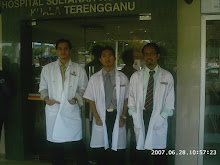WHAT IS HABBATUS SAUDA' / NIGELLA SATIVA / BLACK SEED?
The seeds of nigella sativa / black seed, commonly known as black seed or black cumin, are used in folk (herbal) medicine all over the world for the treatment and prevention of a number of diseases and conditions that include asthma, diarrhoea and dyslipidaemia. This article reviews the main reports of the pharmacological and toxicological properties of Nigella sativa and its constituents.
The nigella sativa / black seeds contain both fixed and essential oils, proteins, alkaloids and saponin. Much of the biological activity of the seeds has been shown to be due to thymoquinone, the major component of the essential oil, but which is also present in the fi ed oil. The pharmacological actions of the crude extracts of the seeds and some of its active constituents, e.g. volatile oil and thymoquinone) that have been reported include protection against nephrotoxicity and hepatotoxicity induced by either disease or chemicals. The seeds/oil have antiinflammatory, analgesic, antipyretic, antimicrobial and antineoplastic activity. The nigella sativa oil decreases blood pressure and increases respiration.
Treatment of rats with the seed extract for up to 12 weeks has been reported to induce changes in the haemogram that include an increase in both the packed cell volume (PCV) and haemoglobin (Hb), and a decrease in plasma concentrations of cholesterol, triglycerides and glucose. The seeds are characterized by a very low degree of toxicity. Two cases of contact dermatitis in two individuals have been reported following topical use.
Administration of either the seed extract or its oil has been shown not to induce significant adverse effects on liver or kidney functions. It would appear that the beneficial effects of the use of the seeds and thymoquinone might be related to their cytoprotective and antioxidant actions, and to their effect on some mediators of inflammation.
Reference:
Ali BH, Blunden G.: Department of Veterinary Medicine, King Saud University, Buraydah, Al Gaseem 81999, Saudi Arabia


0 comments:
Post a Comment